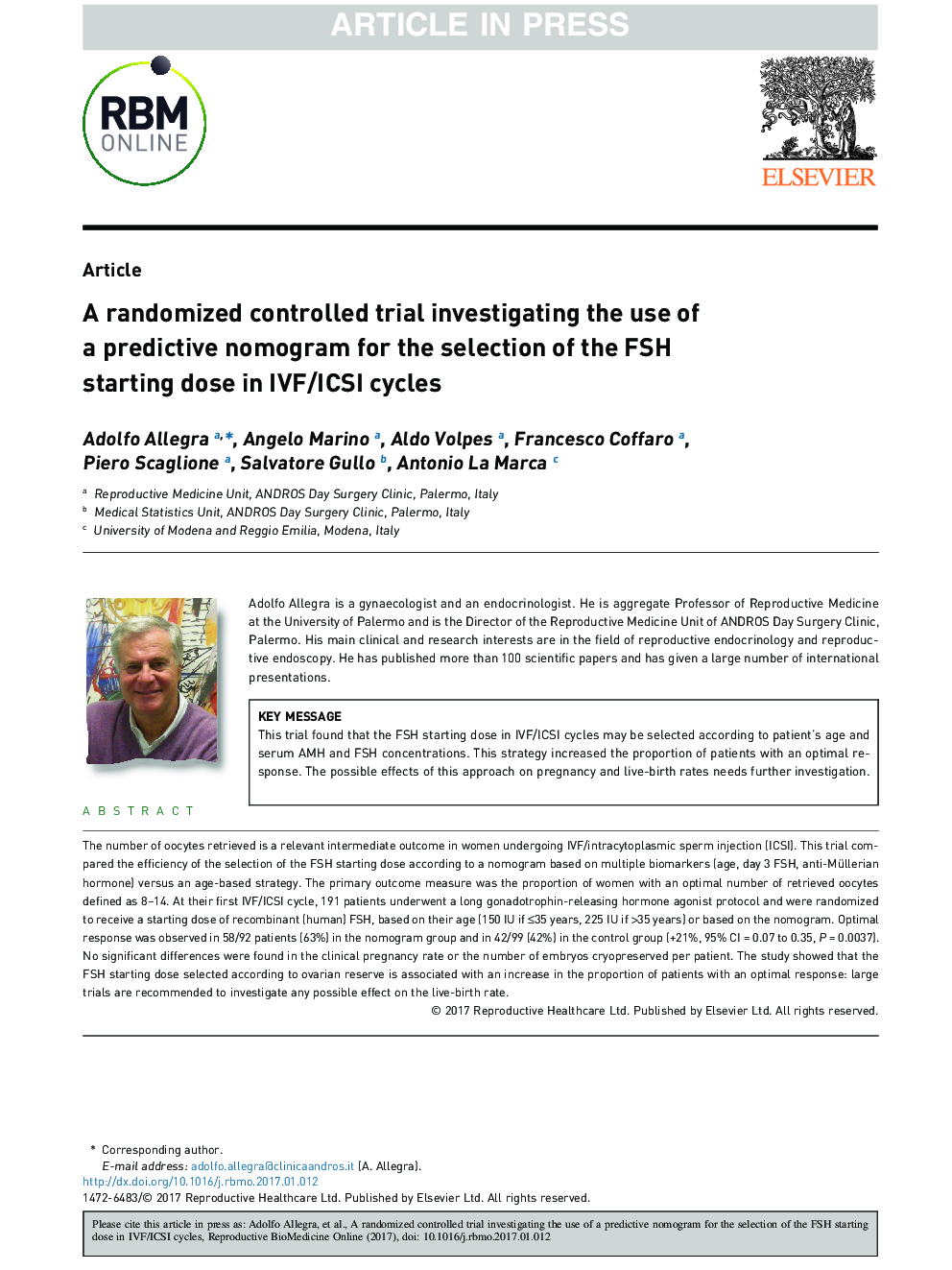| Article ID | Journal | Published Year | Pages | File Type |
|---|---|---|---|---|
| 5696737 | Reproductive BioMedicine Online | 2017 | 10 Pages |
Abstract
The number of oocytes retrieved is a relevant intermediate outcome in women undergoing IVF/intracytoplasmic sperm injection (ICSI). This trial compared the efficiency of the selection of the FSH starting dose according to a nomogram based on multiple biomarkers (age, day 3 FSH, anti-Müllerian hormone) versus an age-based strategy. The primary outcome measure was the proportion of women with an optimal number of retrieved oocytes defined as 8-14. At their first IVF/ICSI cycle, 191 patients underwent a long gonadotrophin-releasing hormone agonist protocol and were randomized to receive a starting dose of recombinant (human) FSH, based on their age (150âIU if â¤35 years, 225âIU if >35 years) or based on the nomogram. Optimal response was observed in 58/92 patients (63%) in the nomogram group and in 42/99 (42%) in the control group (+21%, 95% CI = 0.07 to 0.35, P = 0.0037). No significant differences were found in the clinical pregnancy rate or the number of embryos cryopreserved per patient. The study showed that the FSH starting dose selected according to ovarian reserve is associated with an increase in the proportion of patients with an optimal response: large trials are recommended to investigate any possible effect on the live-birth rate.
Related Topics
Health Sciences
Medicine and Dentistry
Obstetrics, Gynecology and Women's Health
Authors
Adolfo Allegra, Angelo Marino, Aldo Volpes, Francesco Coffaro, Piero Scaglione, Salvatore Gullo, Antonio La Marca,
